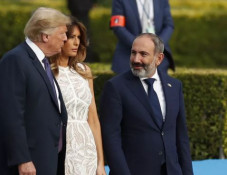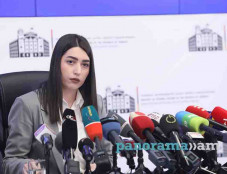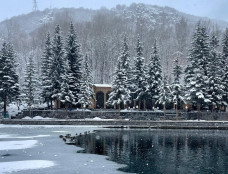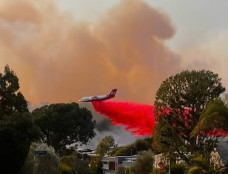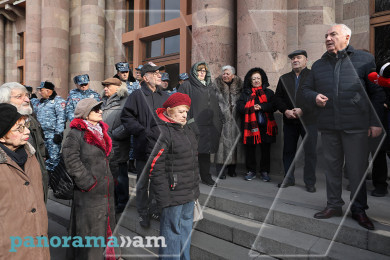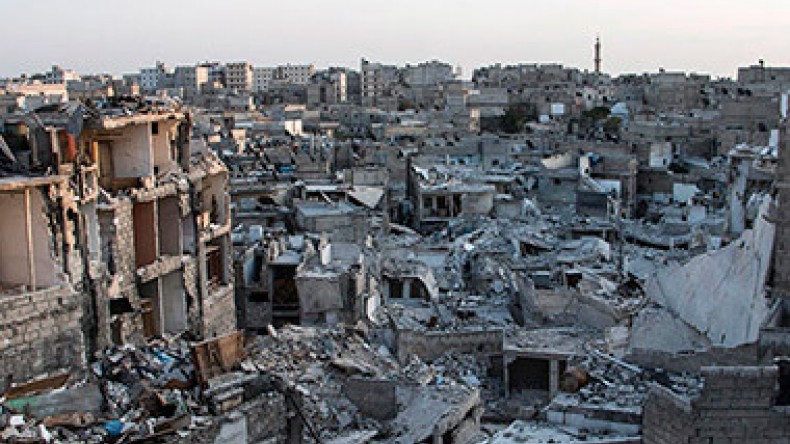
‘Situation in Damascus much better after 2014 elections’
Compared to other Syrian regions and previous years, the situation in Damascus is steady and calm with people getting supplies of fuel and other basic needs subsidized by the government, says political commentator Alaa Ibrahim, RT reports.
RT: What's the situation like in Damascus these days? How's the war being felt there?
Alaa Ibrahim: The situation now in comparison with previous years since the beginning of the war - it is much better here in Damascus now since the presidential elections in 2014. The Syrian government is making an effort to show that it is more relaxed and more confident of its abilities to secure the Syrian capital, has lifted many security check points inside the capital Damascus, opened many roads. There are blackouts and long hours of no electricity here in Damascus, but the situation is much better than in other cities across the country…like Aleppo or Homs for example. But in general the situation now is very steady. People know how many hours of electricity they are getting; they know that there are sustainable supplies of heating, fuel, car petrol, of bread and other basic needs that the government subsidizes here in Syria. These supplies are steady. As the result the situation in Damascus in general is very steady and calm in comparison to previous years. Even the rate of mortar shells that the rebels used to attack Damascus with has dropped in the past few months… Obviously if you compare the situation [to the situation] before 2011 the situation has deteriorated dramatically. But relatively speaking it is better now in the context of the war in general.
RT: What about the fighting elsewhere in Syria? Is the war actively progressing, or is there a sort of stalemate?
AI: The conflict in Syria since the outbreak of the war has been spread all across the country. What happens is that the Syrian government and whatever forces opposing it, ISIS, al-Nusra Front, or any other rebel factions fighting the Syrian government… the intensity of the fighting in different provinces across Syria changes according to international circumstances, according to the weather, according to many factors, according to the Syrian government’s desire to enforce its presence in one province or another. But in general we can safely say that there are estimates that there are over 27 active frontlines between the Syrian government and rebel forces and ISIS and al-Nusra Front. This number is very realistic because there are over 27 locations across Syria, there are active confrontations between the Syrian government forces and the Syrian army on one side and the rebels or whatever forces are opposing the Syrian government on the other side. The situation has been difficult but it is changing.
For example if we speak about provinces that have been now completely under the control of ISIL, the situation is much worse there for the people in the terms of the basic freedoms that they no longer enjoy. Believe it or not even people living under the rule of ISIL in cities like Ar-Raqqah have reported an increase in the level of stability in that province because ISIL allows no breaches of security …
RT: According to US Secretary of State John Kerry, Washington is prepared to negotiate with President Assad. Do you expect this to actually happen? Could it bring positive results if it did?
AI: I think the best response to your question would be in the statements made by the Syrian President Bashar Assad after the meeting with an Iranian delegation that he did just hours ago. He said: “we are waiting for actions, not words!”… I think the Syrian government understands that at some point, because of the increasing security hazards, because of all the foreign jihadists pouring into Syria, because of the fact that Americans are not able to formulate what they call the “moderate rebel force,” despite numerous attempts in the past few years. And we have to bear in mind that Americans in particular have suffered some major setbacks in Syria. For example, American-supplied TOW armor-piercing missile, for e.g., were delivered to what the Americans called “moderate rebels” the Hazzm Movement, which is operating north of Syria. .. Al Nusra Front…attacked Hazzm Movement and took everything in its position including TOW missiles. I think it was very alarming for the Americans to see American weapons in the hands of al-Qaeda which supposedly is the arch enemy of the US and the world’s [second] most dangerous terrorist organization after ISIL.
Newsfeed
Videos





